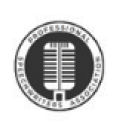Don’t be a boring speaker (it’ll cost you dearly)
 Nobody wants to be labeled as a boring speaker.
Nobody wants to be labeled as a boring speaker.
Nevertheless, we’ve all had to endure boring speakers at one time or another.
But what are the consequences of being a boring speaker? And what should you do next if you believe the speech you’re working on right now sounds boring?
I recently attended a presentation delivered by a speaker with stellar credentials.
This presentation was highly promoted – the highlight of a packed professional development conference – so I registered and paid long before the deadline.
My expectations were high.
This leader was definitely not going to be a boring speaker!
I showed up early and sat toward the front since I didn’t want to miss a word she said.
 She started off with a lot of audience engagement.
She started off with a lot of audience engagement.
All of us were hooked!
But halfway into it, she did a bait-and-switch and defaulted to a slide deck (with lots of multisyllabic words in tiny, multicolored fonts).
Soon, I noticed that my mind had begun wandering.
I tried to pay attention.
 But after a while, it became too hard.
But after a while, it became too hard.
Soon, her words were making little sense.
She sounded a bit like she was delivering a white paper (blah blah blah).
I was struggling – but wanted to give her the benefit of the doubt. (Maybe after the next slide, it’ll get better?)
Until it didn’t.
She had become a boring speaker.
By now I’d been bored long enough. So I spent a few moments looking for an escape route from the room (yes – that’s how boring it was).
The moment I made it out, I felt an immense sense of relief.
Turns out there’s a reason for that.
According to a study published in March 2022 in Personality and Social Psychology Bulletin, there are consequences of being a boring person – or a boring speaker, in the case of my experience above.
According to the research:
- If you are boring, other people will likely believe you are unfriendly and incompetent.
- The more brain power it takes for someone to pay attention to you, the more likely it is that people will judge their encounter with you as even more boring.
- The more boring you are, the more likely it is that people will avoid you (which explains my reason for feeling the need to leave the room).
So here’s the question for public speakers:
How much brain power does it take for your audience to pay attention to you?
If the speech you’re working on right now sounds boring, watch this video to learn the right next step to take today.
And never risk being a boring speaker again.

















